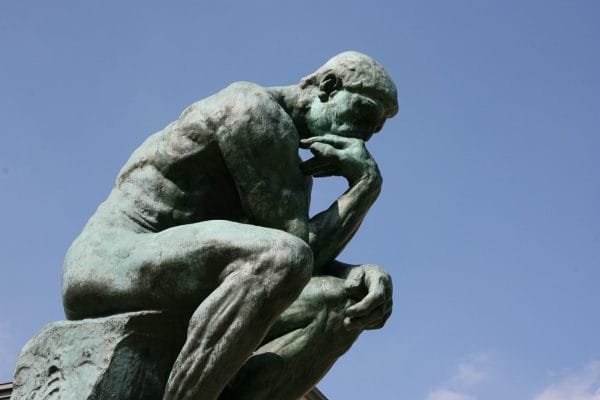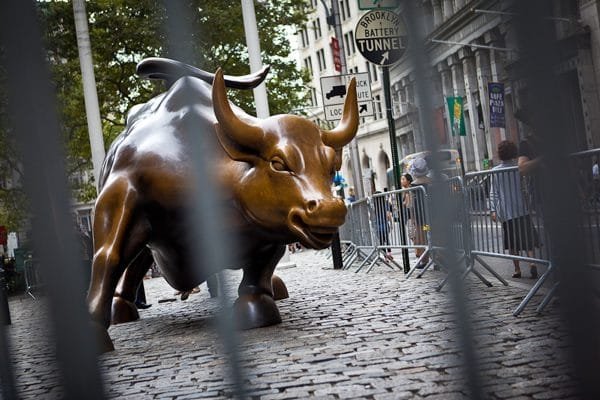Explore the foundations of "laissez-faire" capitalism
Since 1998, when it was a USA Today "Site of the Day" Capitalism.org has been educating students, professionals, and the intellectuals of tommorow on the moral, political and economic foundations of laissez-faire capitalism.
Capitalism is a social system that unleashes the power of the human mind.
Capitalism (from the Latin word capta, meaning “head”) is a social system based on the recognition of individual rights that unleashes the power of the human mind. Central to a proper concept of capitalism is reverence for the power of reason: the individuals means of logically grasping and morally acting in reality. It is this power that allows us to harness the power of the atom for energy, build planes and rocketships to travel the skies and stars, and innovate technology to increase the quantity and improve the quality of our lives.
Capitalism is the social system of the Enlightenment, founded on a philosophy based on reason, individualism, and freedom.
“I am not primarily an advocate of capitalism, but of egoism; and I am not primarily an advocate of egoism, but of reason. If one recognizes the supremacy of reason and applies it consistently, all the rest follows.”
AYN RAND
Capitalism is an integrated system
Capitalism is not just the free-market, but a free society. Capitalism is used here not just in the narrower economic sense (a free-market), but in the broader political sense (a free society). This is because capitalism is not just an economic system that can be grafted onto any political structure, but is an integrated social system that depends on a specific philosophical foundation. As Ayn Rand observes, "I am not primarily an advocate of capitalism, but of egoism; and I am not primarily an advocate of egoism, but of reason. If one recognizes the supremacy of reason and applies it consistently, all the rest follows."

Philosophy: Reality & Reason
Fundamental to a capitalist society is the Enligtenment philosophy that recognizes that reason is an individual's only way of understanding and living reality.

Morality: Rational Self-Interest
Capitalism is based on the moral philosophy of rational egoism: a code of morality based on what a rational being requires to achieve happiness living on earth. Such a moral code is part of an integrated philosophy that in Ayn Rand’s words holds up “the concept of man as a heroic being, with his own happiness as the moral purpose of his life, with productive achievement as his noblest activity, and reason as his only absolute”.

Politics: Individual Rights
To rationally pursue one’s own happiness (self-interest) in reality requires only one thing from others: freedom from coercion. Capitalism regards the individual as a sovereign being with an inalienable moral right to take the actions necessary to support one’s life, so long as one respects the equal freedom of others to do the same.

Legal System: Objective Law
Capitalism operates according to a rule of objective law in both form & function. Capitalism operates under a republican government operating with a separation of powers and a written constitution to limit those powers), whose sole function is the protection of individual rights by banning the initiation of physical force from all human relationships.

Economics: Free-Market
Freedom protected by objective law, applied to the sphere of production and trade, results in a free-market in material — and spiritual — values. In such a division of labor society, one pursues one’s own self-interest by specializing in the production of goods and services for mutually beneficial trade with others.

Culture: Peace, Prosperity & Progress
Culturally, this freedom in the economic and personal sphere leads to innovation in the arts, technology, and sciences, leading to peace (by banishing force from all relationships), progress (by unleashing the power of the rational mind, the source of all progress), and prosperity (by the ability to create more wealth with less time, work, and resources).
Politically, a capitalist is an advocate of laissez-faire capitalism
A capitalist is an advocate of laissez-faire capitalism, regardless of how rich or poor they are. Within the specialized domain of economics, a person who owns a business is recognized as a capitalist, regardless of whether one advocates capitalism politically or not. As an illustration, factory-owner Friedrich Engels is regarded economically as a capitalist, though politically — as co-author of The Communist Manifesto — Engels is a communist. Similarly, philosopher Ayn Rand is regarded economically as a novelist, though politically, Rand is a self-described “radical for capitalism.” Friedrich Engels is a communist, and Ayn Rand is a capitalist, not because of their wealth, but because of their ideas.
"The moral justification of capitalism does not lie in the altruist claim that it represents the best way to achieve 'the common good.' It is true that capitalism does—if that catch-phrase has any meaning—but this is merely a secondary consequence. The moral justification of capitalism lies in the fact that it is the only system consonant with man’s rational nature, that it protects man’s survival qua man, and that its ruling principle is: justice."
— AYN RAND